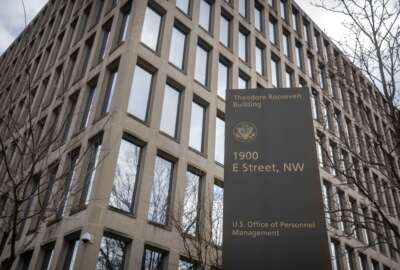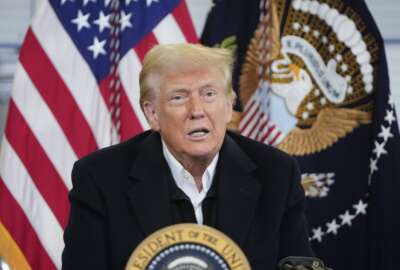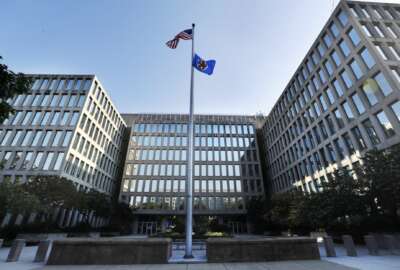Roxanna Vigil: Connecting cultures through public diplomacy
Roxanna Vigil, Foreign Affairs Officer and Venezuela Desk Officer in the State Department's Office of Andean Affairs, Bureau of Western Hemisphere Affairs, shares...
Roxanna Vigil, Foreign Affairs Officer and Venezuela Desk Officer in the State Department’s Office of Andean Affairs, Bureau of Western Hemisphere Affairs, shares her thoughts about being a public servant with Federal News Radio.
Tell us something about your job that most people don’t know or realize.
My friends, family and others I meet who are interested in learning more about my job often ask me to share the typical background of someone who works at the State Department. I saw early in my career that there is no typical background. I’ve worked with people who have had careers in fields completely separate from foreign affairs — teachers, scientists, musicians and lawyers, to name a few. The people who work at the State Department represent U.S. interests around the world, and the department tries to reflect the face of America.
The department has taken several steps to build a more diverse workforce, such as establishing the Pickering and Rangel fellowships, which are wonderful programs that provide underrepresented students with funding for graduate school and prepare students for a career in the Foreign Service. Younger people who are interested in a career at the State Department can apply for a student internship where they can have the opportunity to work in Washington, D.C., or in one of our embassies abroad during a summer or semester.
I had the opportunity to do an internship at our Embassy in Guatemala City when I was a graduate student and that experience has shaped my career.
How does your job connect the government with citizens in a more efficient or effective way?
I am a desk officer on what we refer to as the “Venezuela desk” and work on a team focused on Venezuelan political and economic issues. As part of the Venezuela desk, I am constantly engaging with colleagues who are serving at our embassy in Caracas and colleagues throughout the Department.
I regularly talk with U.S. citizens who have questions about traveling or doing business abroad. I am also in contact with counterparts from other countries, in this case Venezuela, to communicate U.S. policy priorities and receive information from them on their government’s priorities. All of these interactions help the department better represent and advance U.S. interests and values around the world on behalf of the American people.
What’s the best thing you’ve ever done in job with the government?
One thing I’m proud of during my time with the department is my work on public diplomacy programs. Public diplomacy connects Americans with people from other countries and vice versa through educational and cultural experiences. I’ve been able to share my background with American students, such as when they visit the Department to learn more about the work we do, and students from other countries, some of whom have never met an American before. I’ve had the opportunity to travel to Thailand, Cambodia, and Guatemala and work with teachers and students who were dedicated to teaching and learning English, and learning more about U.S. culture and values.
I would encourage anyone interested in educational opportunities abroad to look into some of the State Department’s public diplomacy programs by visiting exchanges.state.gov.
What’s the best piece of job related advice you ever got?
I have had really great mentors who have taught me that it is never too soon to start mentoring others, even as a new employee or young person who might think they don’t have much to offer. I try to learn from younger colleagues and those who may not have as much experience navigating a large organization like the State Department, and pass along the good advice I’ve received.
Read all our coverage of the 2016 Public Service Recognition Week.
Copyright © 2025 Federal News Network. All rights reserved. This website is not intended for users located within the European Economic Area.
Jory Heckman is a reporter at Federal News Network covering U.S. Postal Service, IRS, big data and technology issues.
Follow @jheckmanWFED






